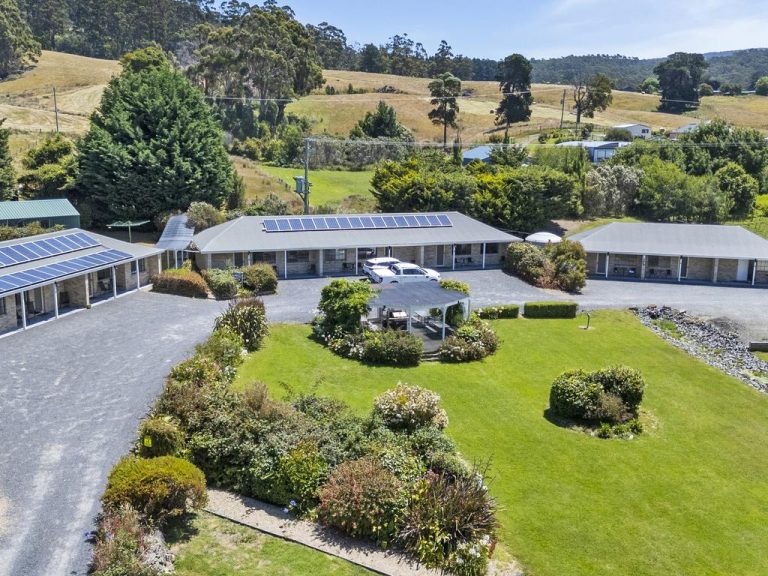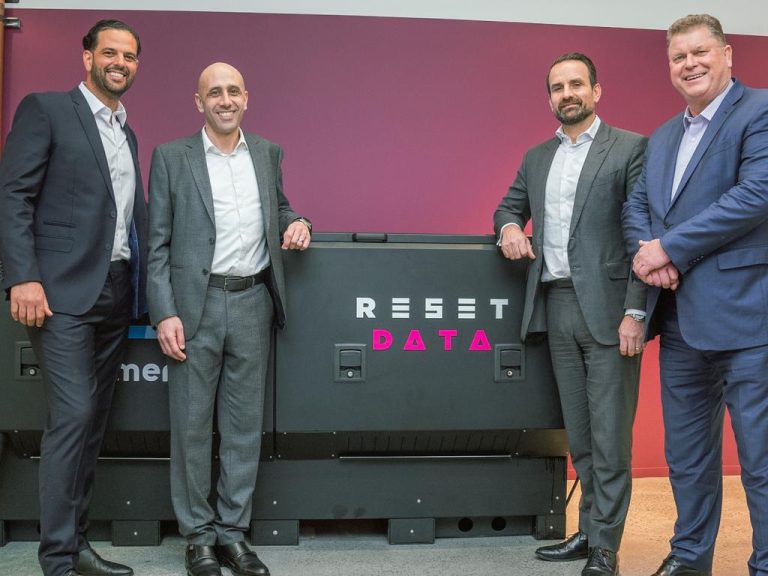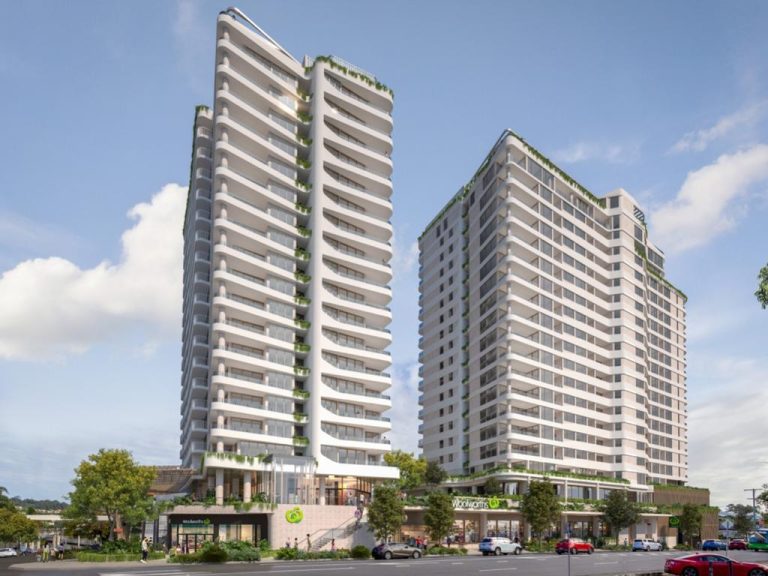Winner, winner: Inside El Jannah’s mission to conquer charcoal chicken
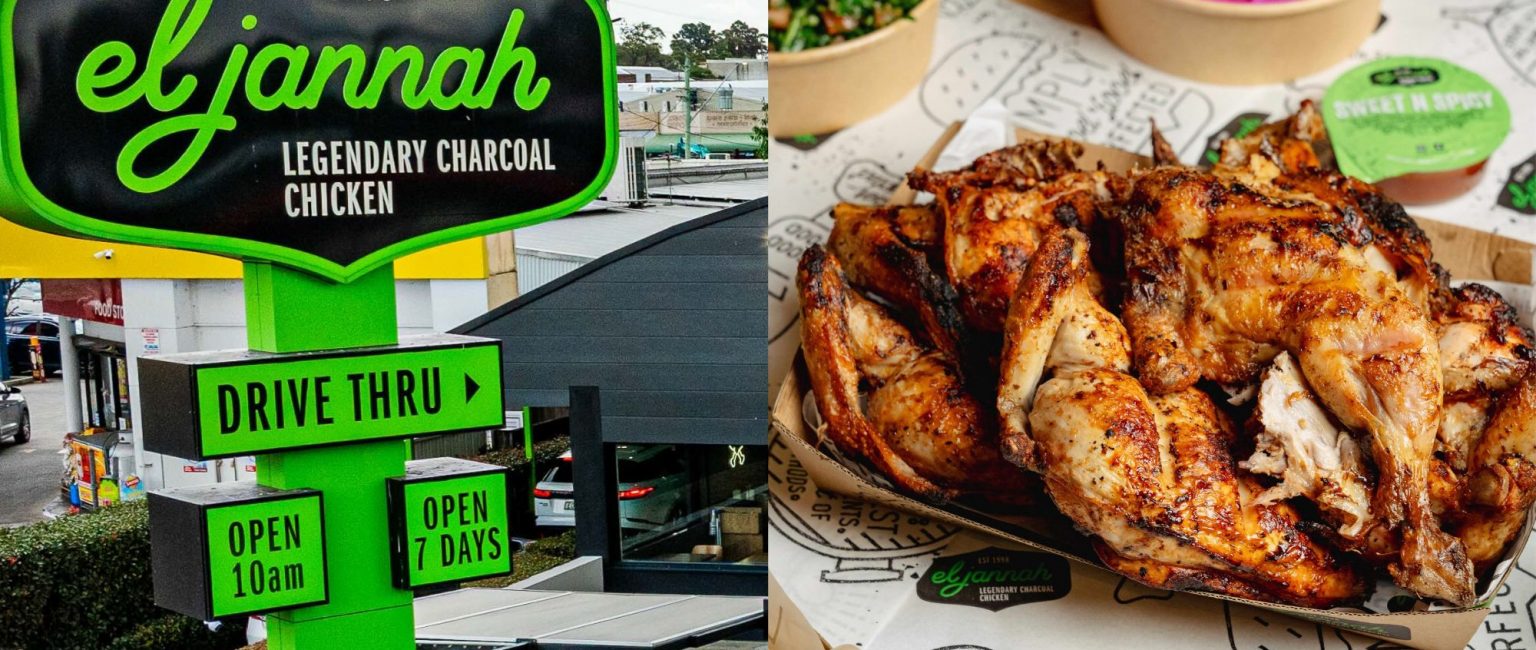
Its first shop amassed a cult-like following among Sydney’s Lebanese community. Now, El Jannah is not only sweeping the city, but jumping state lines, with ambitious plans to conquer the country – and perhaps the world.
Founded in 1998 by Lebanese immigrants Andre and Carole Estephan, El Jannah’s flagship venue in Granville became a fast food phenomenon by putting a Middle Eastern spin on Aussie charcoal chicken.
Think quarter chicken and chips but served with fresh pita bread, mixed pickles and a side of garlic sauce. Or a distinctly Lebanese twist on the classic chicken roll.
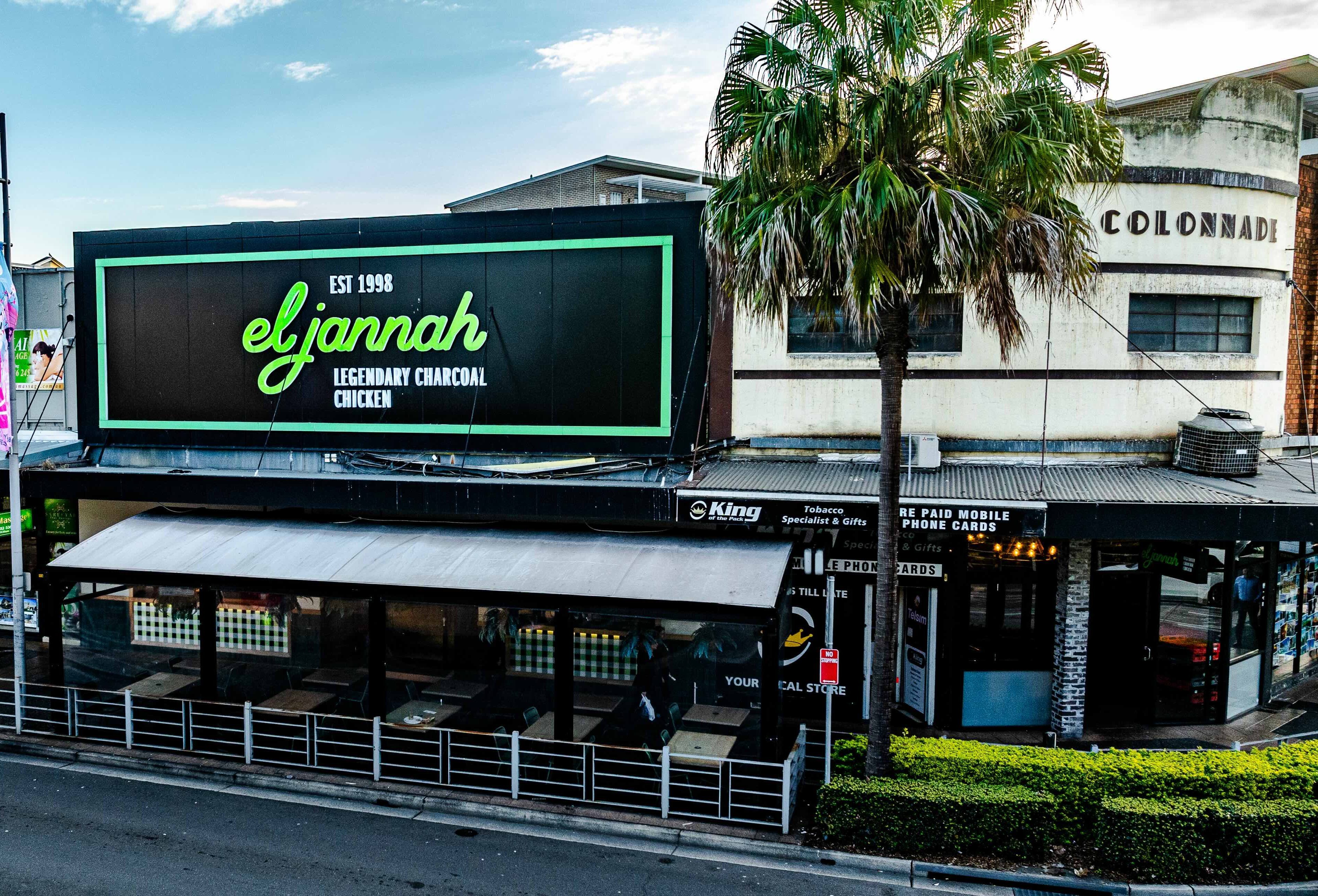
The first store was opened in Sydney in 1998 by Andre and Carole Estephan. Picture: El Jannah
Following the launch of an ambitious franchise campaign in 2019, the company has grown from a modest presence of two Sydney locations into 28 venues across NSW, Victoria and the ACT.
El Jannah cheif executive Brett Houldin said the rising popularity is thanks to the evolving palettes of Australians seeking more varied food choices.
“There are also no brands like us doing charcoal chicken at scale,” Mr Houldin explained.
“Maybe there are one or two family-run chicken shops that do it in certain communities, but there’s not really a broad process around charcoal chicken. Which, along with our unique flavour profile, is definitely one of the unique aspects we bring to market.”
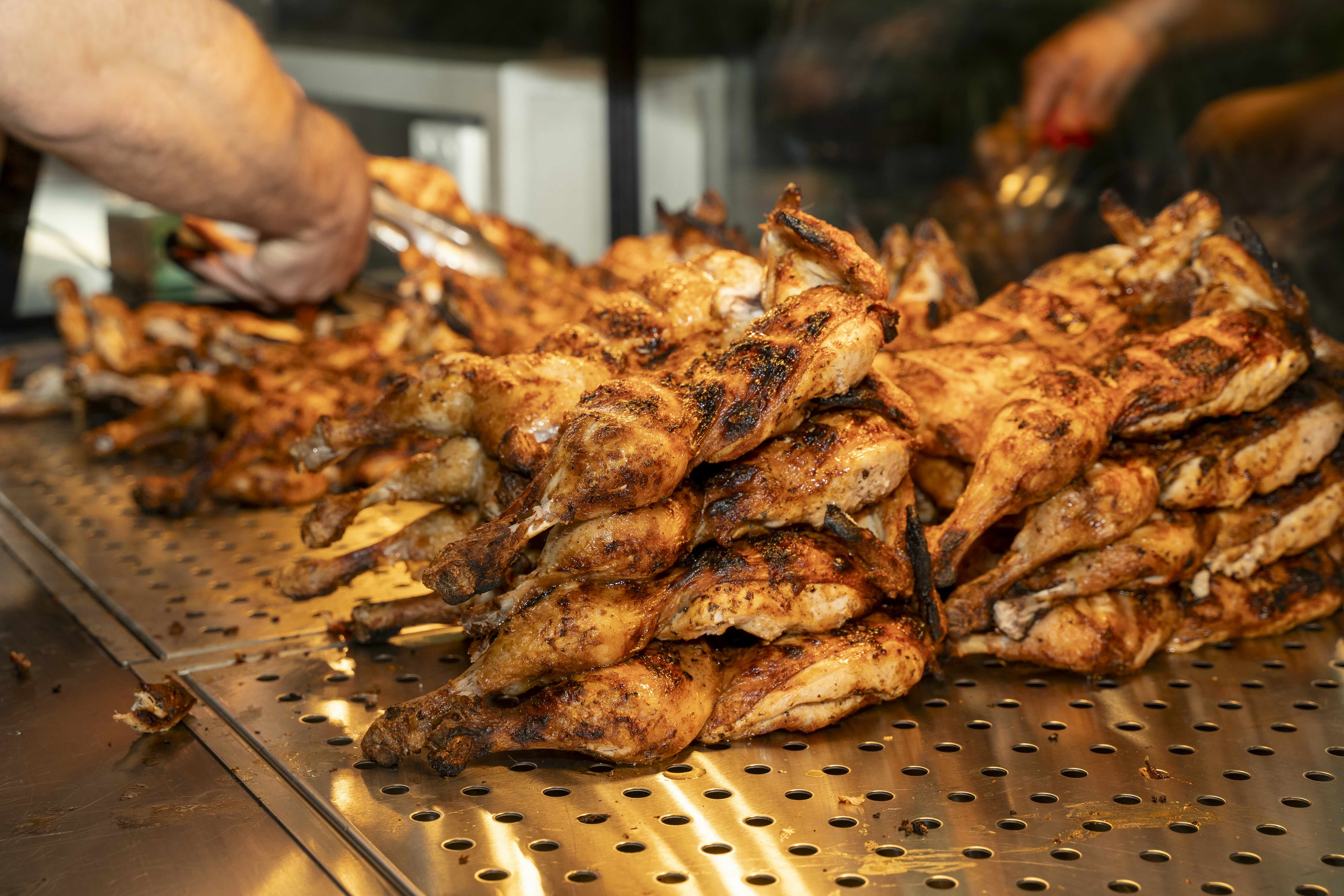
The chain-store’s charcoal chicken has a “unique flavour profile”, according to cheif executive Brett Houldin. Picture: El Jannah.
He said huge demand for the business continues to grow.
“Over the course of the next decade, I’d like to see us with over 300 sites, or maybe closer to 500 if we can,” Mr Houldin told realcommercial.com.au.
“We’ve got quite a lot of that already set up and in the pipeline for the next two to three years, so I see us on track to meet those numbers.”
Humble beginnings
Like many entrepreneurial success stories, the El Jannah dream became a reality when founder Andre Estephan noticed a gap in the Western Sydney market.
“Back in 1998, El Jannah was one of the first of its kind to offer this type of food,” Mr Estephan remembers.
“We saw an opportunity to sell a high-quality product that wasn’t already widely available and Granville was an ideal location because of the existing Lebanese community.”
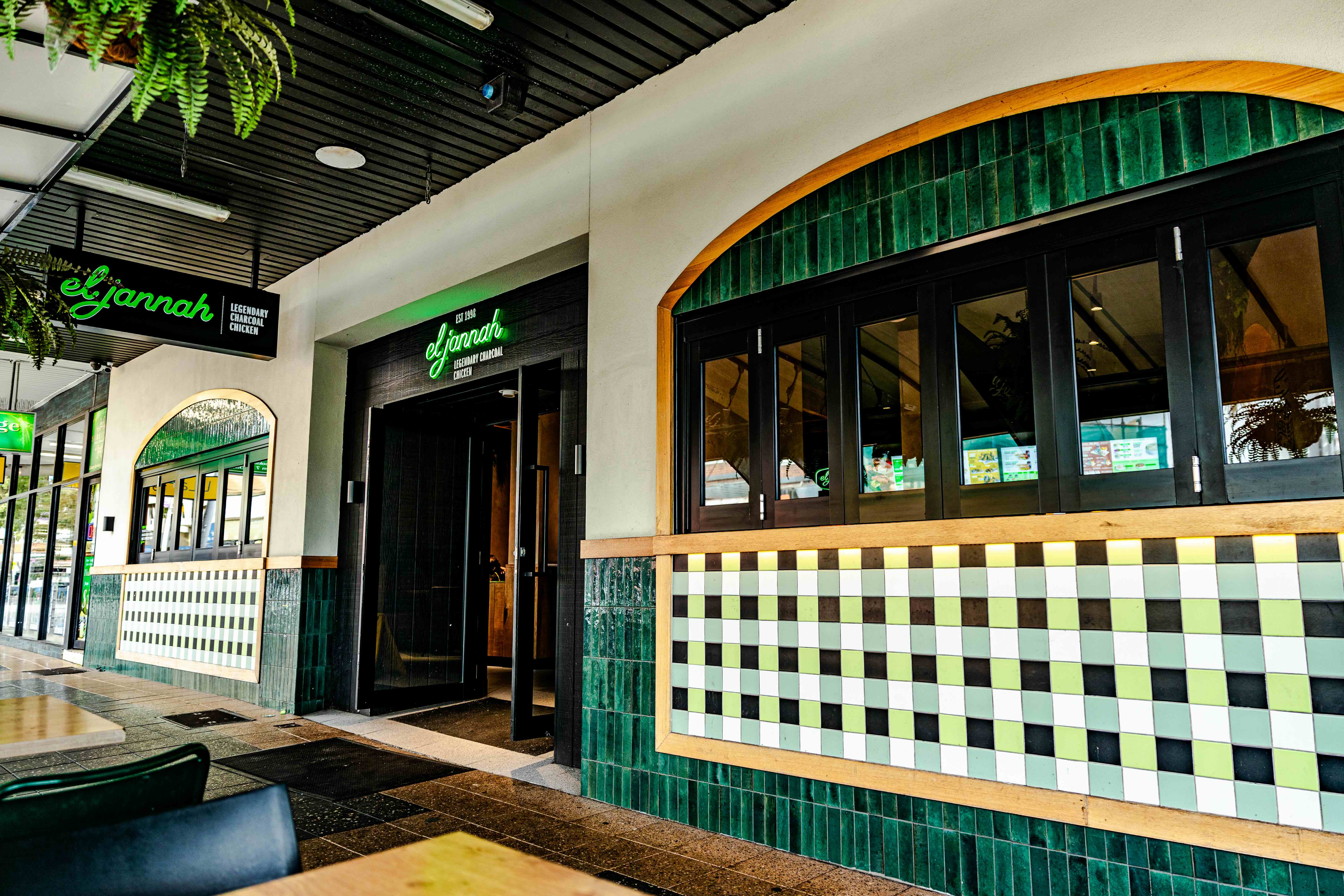
The original store had a cult-following. Picture: El Jannah.
It didn’t take long for Andre and his wife Carole (who back then was the restaurant’s chef) to realise they were onto a hit.
“We loved seeing customers who enjoyed our food and would return with their friends and family. With our charcoal chicken as the hero and sales growing, by the end of the first year of trade we knew it would be a successful business,” Mr Estephan said.
In 2009, the couple opened a second location in the south-west Sydney suburb of Punchbowl.
“At the time, Andre and Carole weren’t thinking of the company becoming a huge brand,” Mr Houldin said. “They simply believed Western Sydney was a key market with the right clientele base. And they were right.”
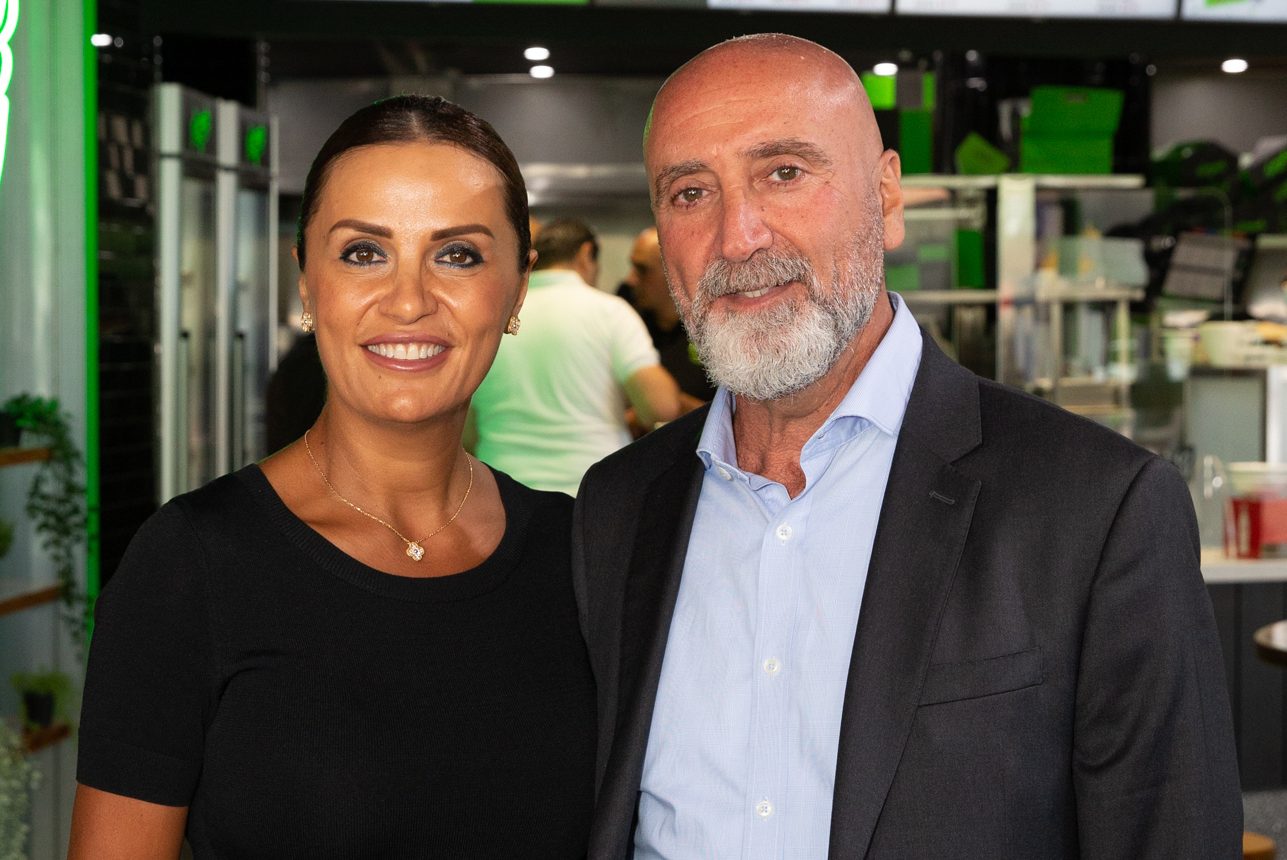
El Jannah founders Andre and Carole Estephan. Picture: El Jannah
West is best, regional next
El Jannah has continued to successfully grow by targeting the Western Sydney market.
“Western Sydney was the heartland of the brand, where it all began, so it made sense to continue expanding in that area,” explained Mr Houldin.
In 2020, the company launched its first drive-through location in Smithfield, also in Sydney’s west.
It was the strong performance of that venue, said Mr Houldin, which gave them the confidence to expand interstate.
“When we launched into Victoria we basically replicated our strategy in Western Sydney by opening two venues in the north-west suburbs of Melbourne. And from day one, those venues in Preston, Campbellfield and Craigieburn have all been very strong performers.”
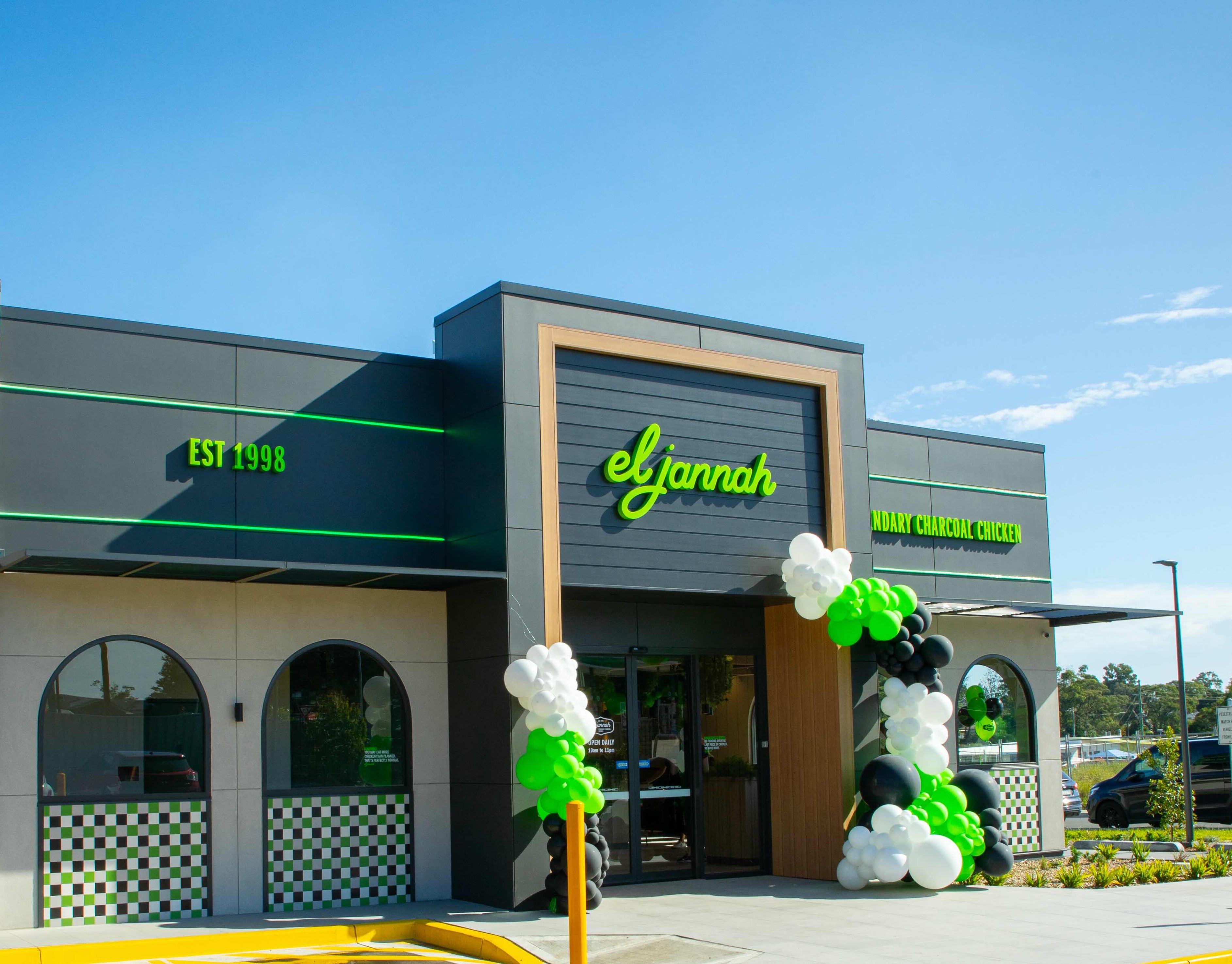
The Tahmoor store is one of the more recent in the chain. Picture: El Jannah.
Growing within the city-fringes of Sydney and Melbourne remains a key strategy for the business, though El Jannah now has its sights set on regional areas.
“The volumes we’ve seen in locations like Tahmoor and Albion Parkin NSW is consistent with where our existing markets are at, so I think we’re definitely on the right track,” said Mr Houldin.
Suzee Brain, director of food retail consultancy firm Titanium Food, noted how a regional strategy can work well for quick-service restaurants (QSRs) because they are servicing an undersupplied market.
“It’s always important to consider ‘dining density’ – that is, how many outlets are there per head of population? In Australia, we average one fast food outlet for every 833 people, while in regional areas it can be one for every three to four thousand people,” Ms Brain explained.
“We have data that shows that lower SEIFA indexed trade areas frequent fast food outlets more frequently.”
A golden age of Australian fast food
According to Ms Brain, the emergence of local fast food brands – coupled with the lacklustre response to certain US brands in Australia – is a prime example of our fast food market becoming “sophisticated”.
“We are the most multicultural country in the world with access to incredible produce. Where else in the world can you experience such amazing execution of Mexican, chicken, pizza, Greek, sushi, Vietnamese, Thai and great burgers?” Ms Brain said.
“Overseas brands often can’t match our levels of freshness, price or value.”
Since 2014, Betty’s Burgers has grown from one location on the Sunshine Coast to 60 restaurants nationwide, while Mexican-inspired fast food chain Guzman Y Gomez has expanded to 185 locations since 2006.
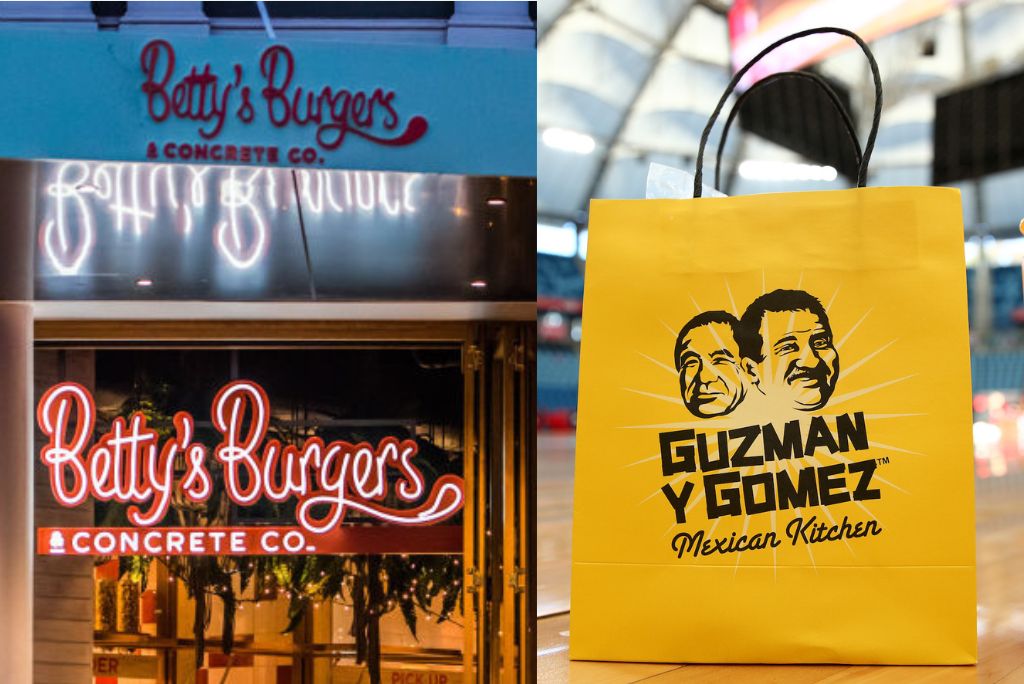
The Aussie fast-food chains taking on the US giants. Picture: Getty
Franchise law expert Elizabeth Gore-Jones said the success of these companies could inspire more Aussie brands to enter the market.
“I think the Guzman IPO opens potential franchisors to the opportunities which can arise from growing a brand,” Ms Gore-Jones said.
“Many franchisors enter with an end game in mind, but they should also consider the ultimate possibilities.”
Naturally, Mr Houldin believes Australia is entering a golden age of fast food.
“If you can offer something different to those American originated brands and provide quality, convenience and freshness at scale, then it will resonate with customers. I think that’s what people are looking for at the moment.”
A heavenly future
Looking ahead, Mr Houldin believes the sky is the limit for his business. Which is fitting, given ‘El Jannah’ means ‘heaven’ in Arabic.
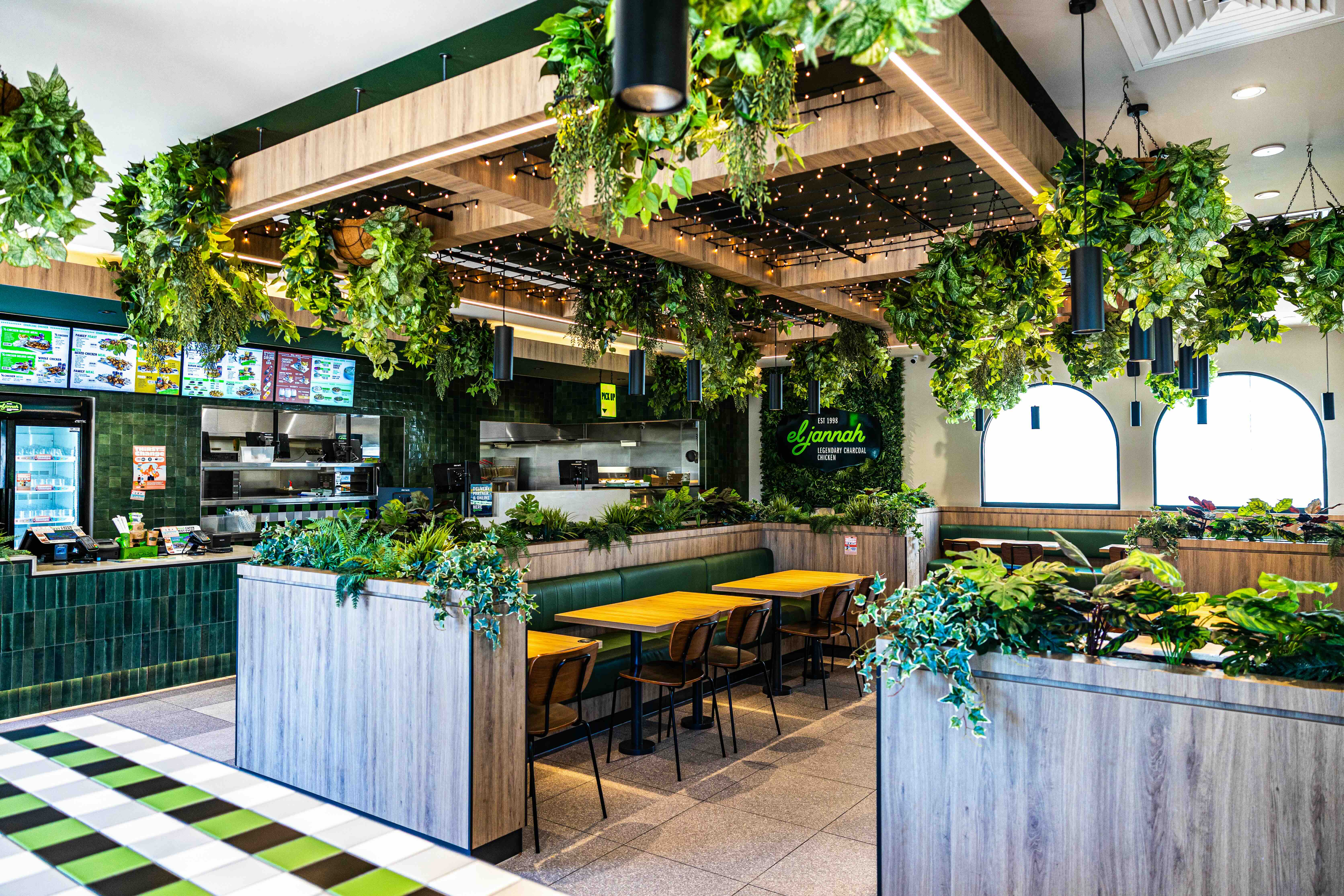
There are plans to take the brand nation-wide. Picture: El Jannah
“I’d love the brand to be all over the country and potentially go international. We’ve got a lot of good inquiry for some overseas markets, but for now we’ll be entering Queensland this financial year and hopefully South Australia as well. And we’ll be heading into more regional parts of the eastern seaboard the following year,” he detailed.
“As we continue to break new markets, it gives us another chance to tell the El Jannah story and allow people to taste our chicken.”

